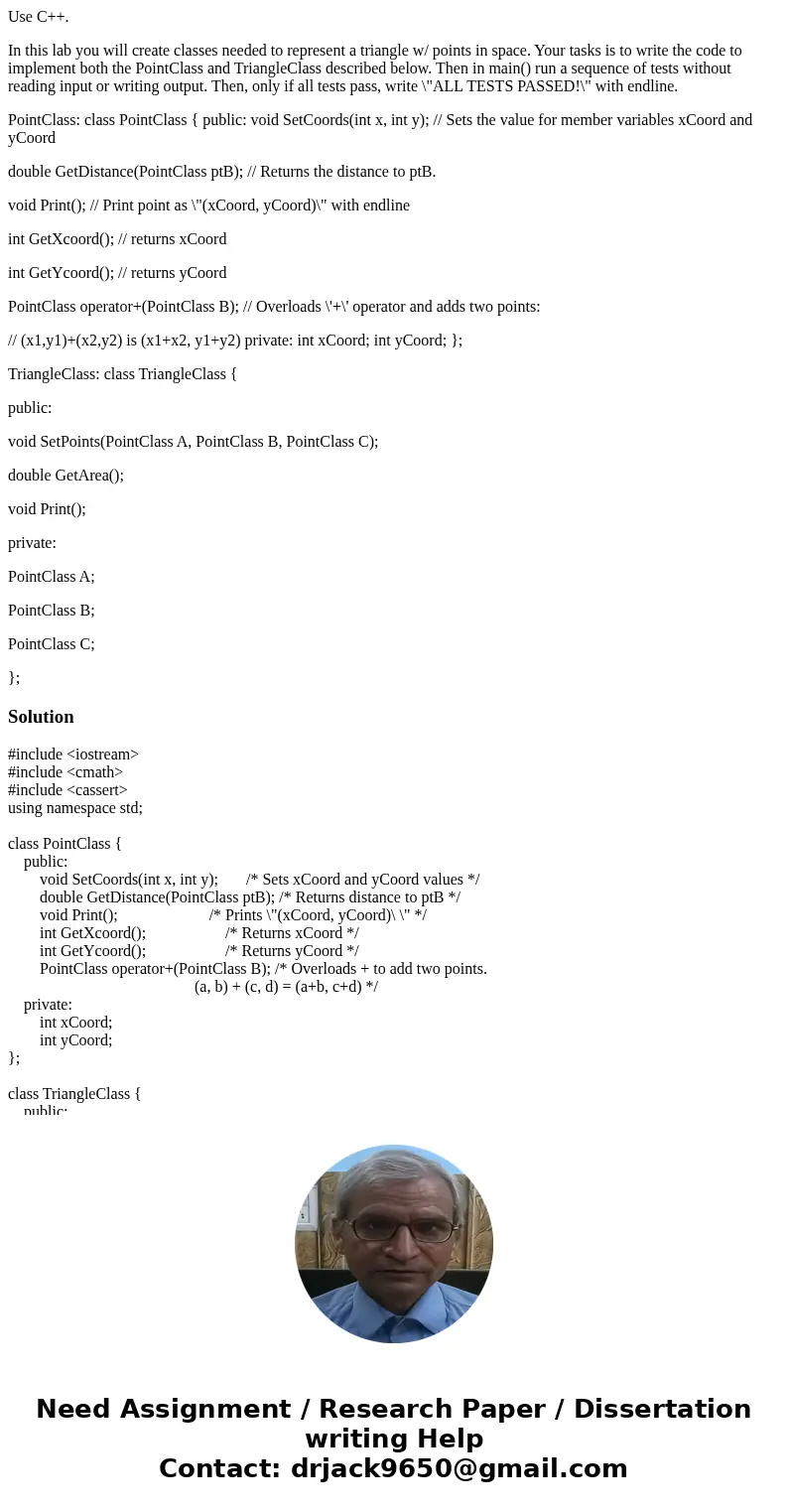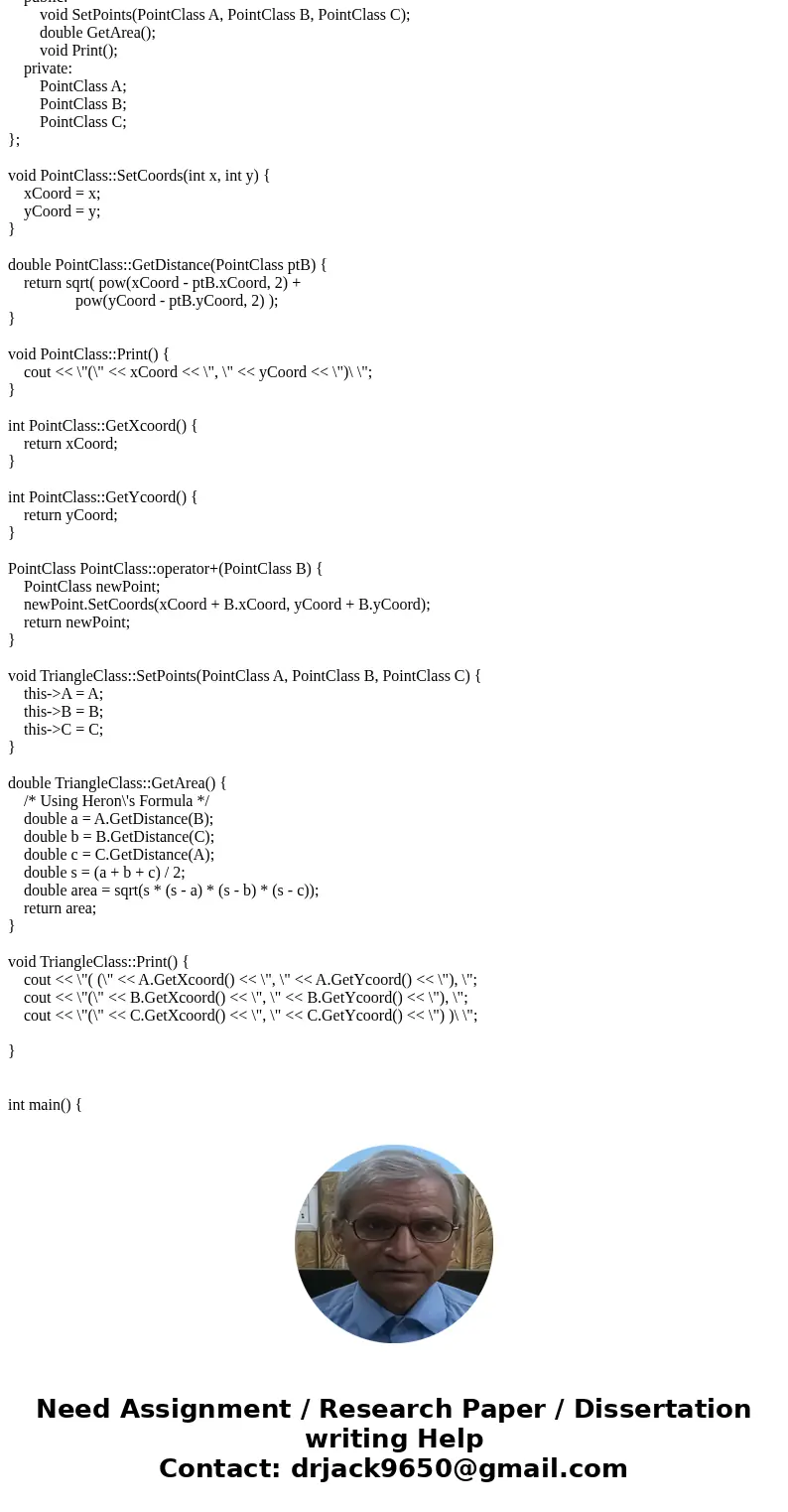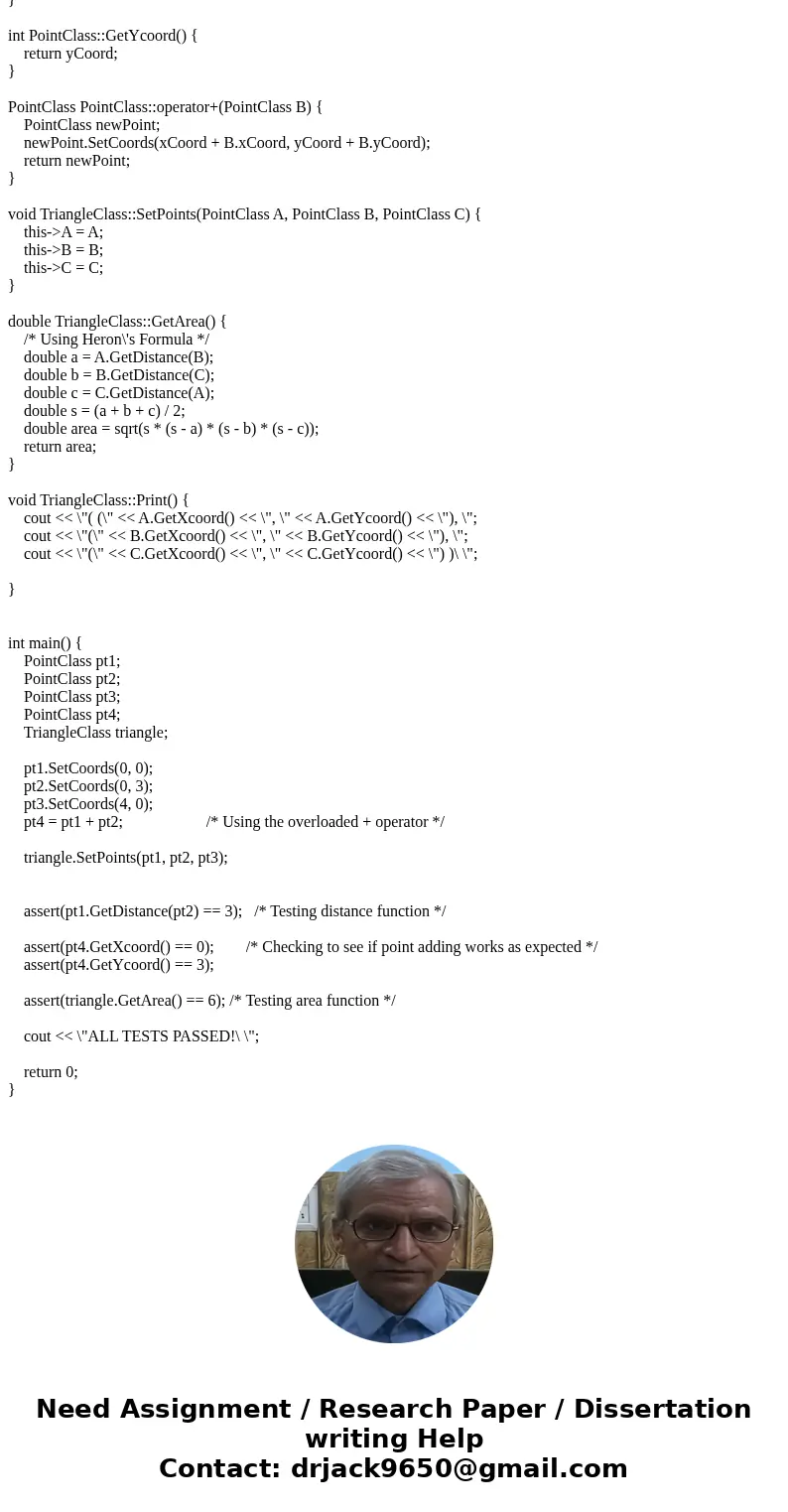Use C In this lab you will create classes needed to represen
Use C++.
In this lab you will create classes needed to represent a triangle w/ points in space. Your tasks is to write the code to implement both the PointClass and TriangleClass described below. Then in main() run a sequence of tests without reading input or writing output. Then, only if all tests pass, write \"ALL TESTS PASSED!\" with endline.
PointClass: class PointClass { public: void SetCoords(int x, int y); // Sets the value for member variables xCoord and yCoord
double GetDistance(PointClass ptB); // Returns the distance to ptB.
void Print(); // Print point as \"(xCoord, yCoord)\" with endline
int GetXcoord(); // returns xCoord
int GetYcoord(); // returns yCoord
PointClass operator+(PointClass B); // Overloads \'+\' operator and adds two points:
// (x1,y1)+(x2,y2) is (x1+x2, y1+y2) private: int xCoord; int yCoord; };
TriangleClass: class TriangleClass {
public:
void SetPoints(PointClass A, PointClass B, PointClass C);
double GetArea();
void Print();
private:
PointClass A;
PointClass B;
PointClass C;
};
Solution
#include <iostream>
#include <cmath>
#include <cassert>
using namespace std;
class PointClass {
public:
void SetCoords(int x, int y); /* Sets xCoord and yCoord values */
double GetDistance(PointClass ptB); /* Returns distance to ptB */
void Print(); /* Prints \"(xCoord, yCoord)\ \" */
int GetXcoord(); /* Returns xCoord */
int GetYcoord(); /* Returns yCoord */
PointClass operator+(PointClass B); /* Overloads + to add two points.
(a, b) + (c, d) = (a+b, c+d) */
private:
int xCoord;
int yCoord;
};
class TriangleClass {
public:
void SetPoints(PointClass A, PointClass B, PointClass C);
double GetArea();
void Print();
private:
PointClass A;
PointClass B;
PointClass C;
};
void PointClass::SetCoords(int x, int y) {
xCoord = x;
yCoord = y;
}
double PointClass::GetDistance(PointClass ptB) {
return sqrt( pow(xCoord - ptB.xCoord, 2) +
pow(yCoord - ptB.yCoord, 2) );
}
void PointClass::Print() {
cout << \"(\" << xCoord << \", \" << yCoord << \")\ \";
}
int PointClass::GetXcoord() {
return xCoord;
}
int PointClass::GetYcoord() {
return yCoord;
}
PointClass PointClass::operator+(PointClass B) {
PointClass newPoint;
newPoint.SetCoords(xCoord + B.xCoord, yCoord + B.yCoord);
return newPoint;
}
void TriangleClass::SetPoints(PointClass A, PointClass B, PointClass C) {
this->A = A;
this->B = B;
this->C = C;
}
double TriangleClass::GetArea() {
/* Using Heron\'s Formula */
double a = A.GetDistance(B);
double b = B.GetDistance(C);
double c = C.GetDistance(A);
double s = (a + b + c) / 2;
double area = sqrt(s * (s - a) * (s - b) * (s - c));
return area;
}
void TriangleClass::Print() {
cout << \"( (\" << A.GetXcoord() << \", \" << A.GetYcoord() << \"), \";
cout << \"(\" << B.GetXcoord() << \", \" << B.GetYcoord() << \"), \";
cout << \"(\" << C.GetXcoord() << \", \" << C.GetYcoord() << \") )\ \";
}
int main() {
PointClass pt1;
PointClass pt2;
PointClass pt3;
PointClass pt4;
TriangleClass triangle;
pt1.SetCoords(0, 0);
pt2.SetCoords(0, 3);
pt3.SetCoords(4, 0);
pt4 = pt1 + pt2; /* Using the overloaded + operator */
triangle.SetPoints(pt1, pt2, pt3);
assert(pt1.GetDistance(pt2) == 3); /* Testing distance function */
assert(pt4.GetXcoord() == 0); /* Checking to see if point adding works as expected */
assert(pt4.GetYcoord() == 3);
assert(triangle.GetArea() == 6); /* Testing area function */
cout << \"ALL TESTS PASSED!\ \";
return 0;
}



 Homework Sourse
Homework Sourse